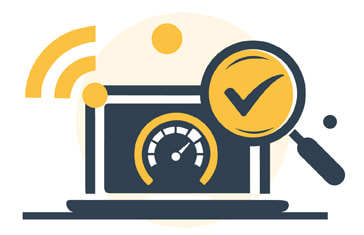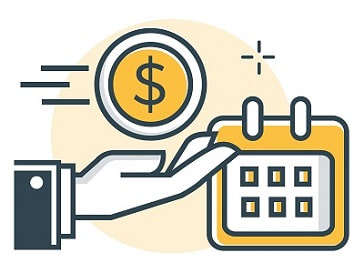How to Handle Rising Interest Rates - The Definitive New Zealand Guide
As the OCR stays high relative to recent record lows, the squeeze negatively affects anyone with a mortgage. Our guide explains what the options are to minimise the discomfort and make a difficult situation a little easier to navigate.
Updated 8 November 2023
Summary
Know This: MoneyHub has several money-saving guides to help reduce household costs. We suggest looking at the following:
Related Resource: Our How to Manage Higher Mortgage Payments guide comprehensively explains everything you need to know about rising mortgage costs and should be read alongside this guide.
Related Guides:
- The era of cheap money is over. Banks have lent out at record-low interest rates but now the OCR is increasing as the Reserve Bank fights 30+ year high inflation.
- This means bad news for anyone with a mortgage - first home buyers, investors, retirees with a reverse mortgage anyone else. The monthly cost of repaying a mortgage is increasing every time the Reserve Bank increases the OCR.
- Increasing mortgage rates are only part of the problem - inflation and a low New Zealand Dollar is increasing the cost of living. Food costs in particular are at record highs.
- Our guide has ten proven ways to combat the costs of increasing interest rates and helps to make your money go further. The more you action, the more you'll save and protect your finances for what will arguably be an uncertain future.
Know This: MoneyHub has several money-saving guides to help reduce household costs. We suggest looking at the following:
- 20 Easy Ways to Save LOTS on Household Bills
- 15+ Must-Know Money Tips for Any Household Moving to a Single Income
- Cut Driving Costs in New Zealand
- Save Money on Food
- 20 Things to Stop Buying to Have More Money
- 20 Indicators You're Doing Well Financially
- 20 Must-Know Money Lessons (Learned From Experience)
- 20 Money Habits that Keep You Poor
Related Resource: Our How to Manage Higher Mortgage Payments guide comprehensively explains everything you need to know about rising mortgage costs and should be read alongside this guide.
Related Guides:
10 Ways to Defend Against High Interest Rates:
Avoid storing cash in 0% 'savings' accounts - there are much better offers and every dollar of interest earned countsMoneyHub has been featured in the media about appallingly low 'savings' accounts, but there are savings accounts which pay 2%+ p.a. on balances, as our guide explains. While the rates are well below the current inflation rate, it's much better than 0% or the near-zero many big banks offer.
Banks are charging high interest rates on mortgages but not paying it out in on-call or everyday savings accounts. This means you lose irregardless of how small your cash savings are. Does the interest rate make a difference?Yes – we believe that regardless of how much you want to invest, good financial habits (and inflation protection) come from sensible investing. And the numbers speak for themselves – a rate of 5.00% p.a. is 33X better than the miserable 0.15% p.a. we know is advertised by some banks' savings accounts.
More information: Our guide to call accounts and savings accounts demonstrate that most banks offer reasonable incentives to keep your money in higher interest (yet accessible) accounts. |
Consider making an overpayment to reduce what you owe and save on interest costs (and/or lower your monthly mortgage costs)With inflation well over 5% p.a. and with no foreseeable slowdown, money sitting in a savings account or term deposit is still effectively losing value.
Managed funds offer long-term investment opportunities, and many growth-focused funds aim to beat not only inflation but also the performance of sharemarkets. There is, however, the risk that you'll lose money if the value of the fund goes down and you decide to sell. On the other hand, managed funds will diversify your wealth, which is helpful if you're otherwise sitting on cash, earning an interest rate well below the inflation rate. Our guide to managed funds has more information about long-term options, the risks and must-know facts. Some funds invest in an index (like the S&P500 or NZX50); others follow a sector (property, infrastructure or natural resources). In contrast, some funds are set up to pick winners and buy shares in companies they see opportunities in across different industries. |
Start trimming your unused subscription costsKnow This: Many New Zealanders start on 'trial' memberships which insidiously flip over to regular monthly or annual memberships and cost $100 - $500 each. It's expensive and best avoided by cutting them out once and for all. For example, Netflix's share price dropped 40% in April 2022 when hundreds of thousands of subscribers cut back and cancelled to trim their monthly expenses.
The best way to beat inflation is to cut down on things you have a habit of buying but arguably neither need nor want. The best starting point is printing out two months of credit card statements and bank statements. Then, get a pen and circle what you think you can cut down or get rid of. If you're not satisfied which your trimming, go through it a few more times and challenge where your money goes. With everything you have flagged, find out how to 'cancel subscription', end the payments and/or stop yourself from spending on what you don't need or want. |
Switch providers to saveMoneyHub was created to undertake price comparison research and highlight the differences between companies. There has never been a category where we've found prices are similar. Insurance and electricity have some of the biggest differences in price, based on our research. For example, in Auckland, we found the difference between the lowest price power company and the highest price to be around $1,000 for an average household. Given electricity is indistinguishable, comparing and switching has never been a better way to save (and combat inflation).
What switches can save me the most?Based on our extensive research, we suggest comparing the following:
Know This: Switching is easy to do, and companies expect to gain and lose customers when they shop around looking for a better deal. You're always better off switching if the service/coverage is the same (or better) than your existing provider. |
Fix your mortgage as low as possibleFirst home buyers and investors enjoyed low-interest rates between 2019 and up until the start of 2022. Now, with inflation what it is, the Reserve Bank is re-prioritising inflation control which means interest rates will remain higher and monthly mortgage repayments will increase.
How do I keep my mortgage repayments as low as possible when there is high inflation interest rates keep increasing?
|
Change what you buySupermarket costs are insanely expensive. As a result, many New Zealanders struggle and choose what they buy carefully. There are many reasons why it's so expensive, and sadly little is being done to bring down the arguably artificially high prices.
How can I save right now? We suggest running down your existing supplies. While it is arguable food will cost more later with inflation, it's a huge saving upfront to go through your freezer and pantry and start using what you already have. This avoids the need to buy new items from the supermarket every time. This YouTube video explains how it's done and makes it easy to follow - it's called the "pantry challenge" and it's a fast-way to save right now. MoneyHub Founder Christopher Walsh shares his comments on supermarket prices and how to save where it matters:
|
Ask for a pay increase and/or change jobs to get a pay riseNew Zealand employers are unlikely to increase salaries by 5% or even 8% per year to keep up with inflation. Many employees have received below-average pay increases since COVID (as this article outlines) and will unlikely be offered anything that keeps up with inflation in the coming years.
If you work for a small or medium-sized company, the best starting point is to see if your employer is currently recruiting. If they are, look at what they're offering and how much they're paying. You will need to be bold, but the unease about asking for a pay rise is worth it if you successfully state your case. If you work at a larger company, look to see what jobs are advertised and enquire about salaries and benefits. You can then ask to talk about your position or go for an interview and see what else you can get. It's not unusual to see a 10% or even 30% pay increase just by jumping employers. You can also use the offer(s) to support a pay rise if you want to stay in your current role. If you're a government employee or work under a ministry, collective negotiations are going on. However, there is less room for bargaining. |
Don't put off big-ticket purchasesCosts are going up – housing materials, flights, cars and other arguably essential items due to a supply shortage and rising material costs. So if you need to spend the money on something big, it's arguably a good idea to prioritise it before the cost goes up any further.
|
Check if you're eligible for government supportThe government offers a lot of support for everyday New Zealanders, and many hard-working taxpayers receive financial assistance for things like rent and expenses. Our guide to Work and Income has more information about how to navigate the process of applying.
The most likely support you'll receive includes: |
Consider selling a second carDon't underestimate the costs of running a second car, especially if are you moving to a single income.
Car ownership is expensive - if your family has two cars, would you be OK with one? When you sell a car, you'll not only get a sum of money, but you'll save a lot of ongoing costs. There will be no more WOF, repair costs, insurance and petrol station shocks. If you're a young family and one parent is commuting by public transport anyway, it's worth looking into. Many families do just fine with one car - we suggest strongly considering it. Next Steps: Our guide to car valuations helps estimate what your car is worth, which may incentivise you to sell it altogether. |
Related Guides:
- How to Inflation-Protect Your Finances
- 20 Easy Ways to Save LOTS on Household Bills
- 15+ Must-Know Money Tips for Any Household Moving to a Single Income
- Cut Driving Costs in New Zealand
- Save Money on Food
- Inflation Calculator
- 20 Things to Stop Buying to Have More Money
- 20 Indicators You're Doing Well Financially
- 20 Must-Know Money Lessons (Learned From Experience)
- 20 Money Habits that Keep You Poor
















